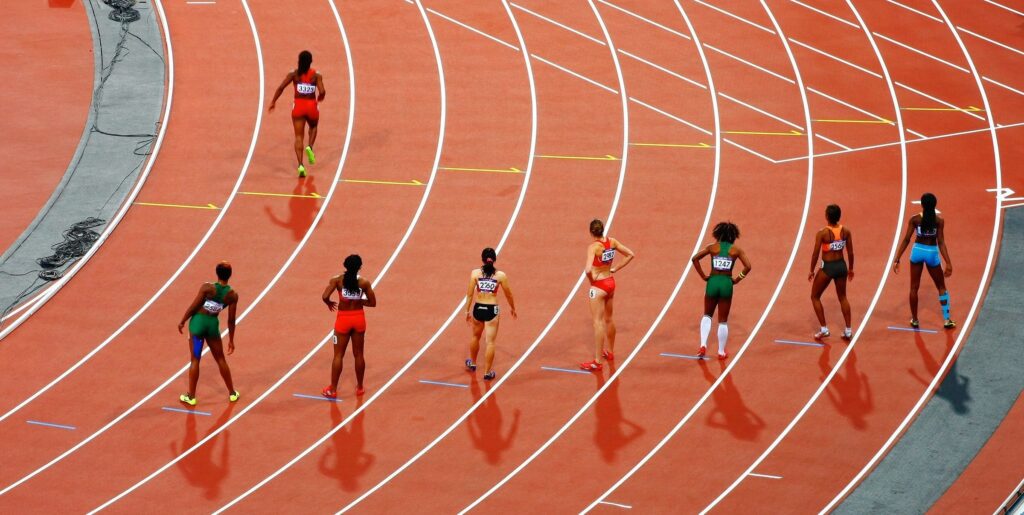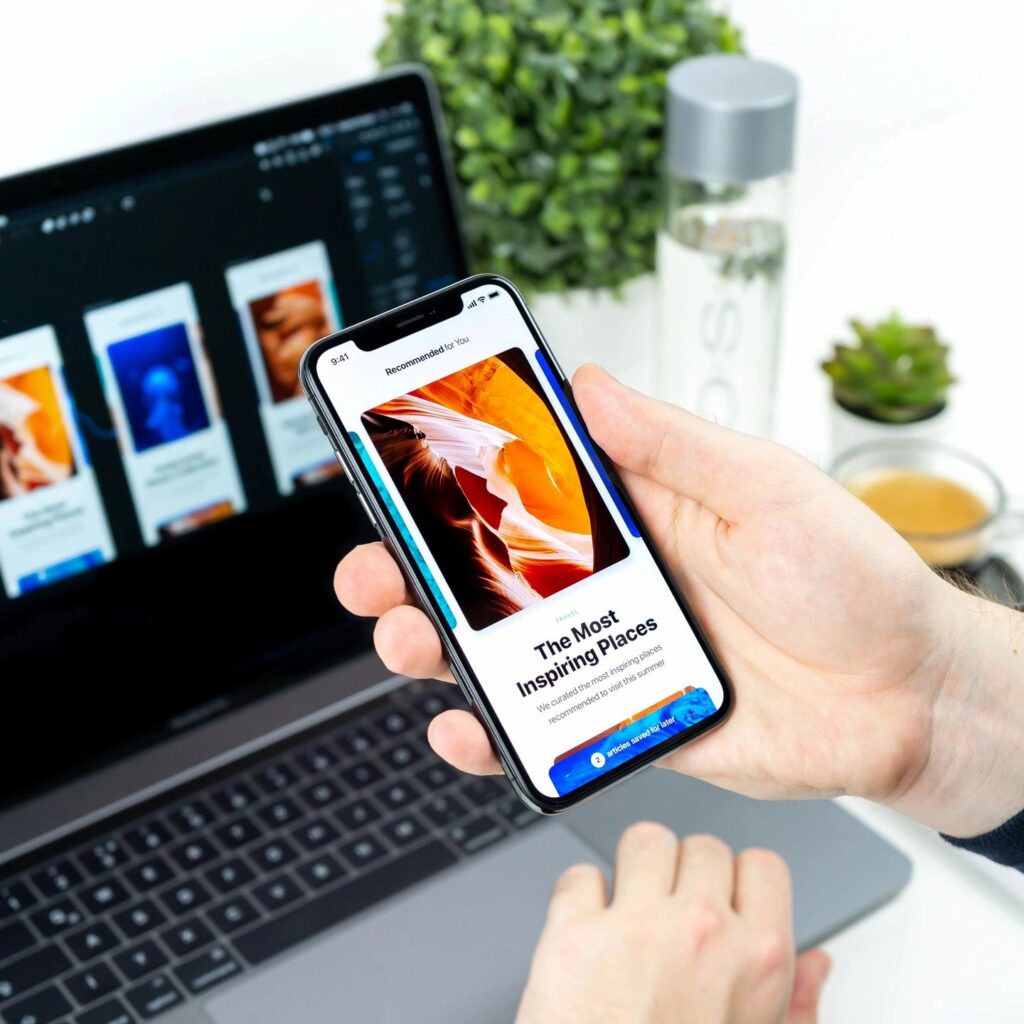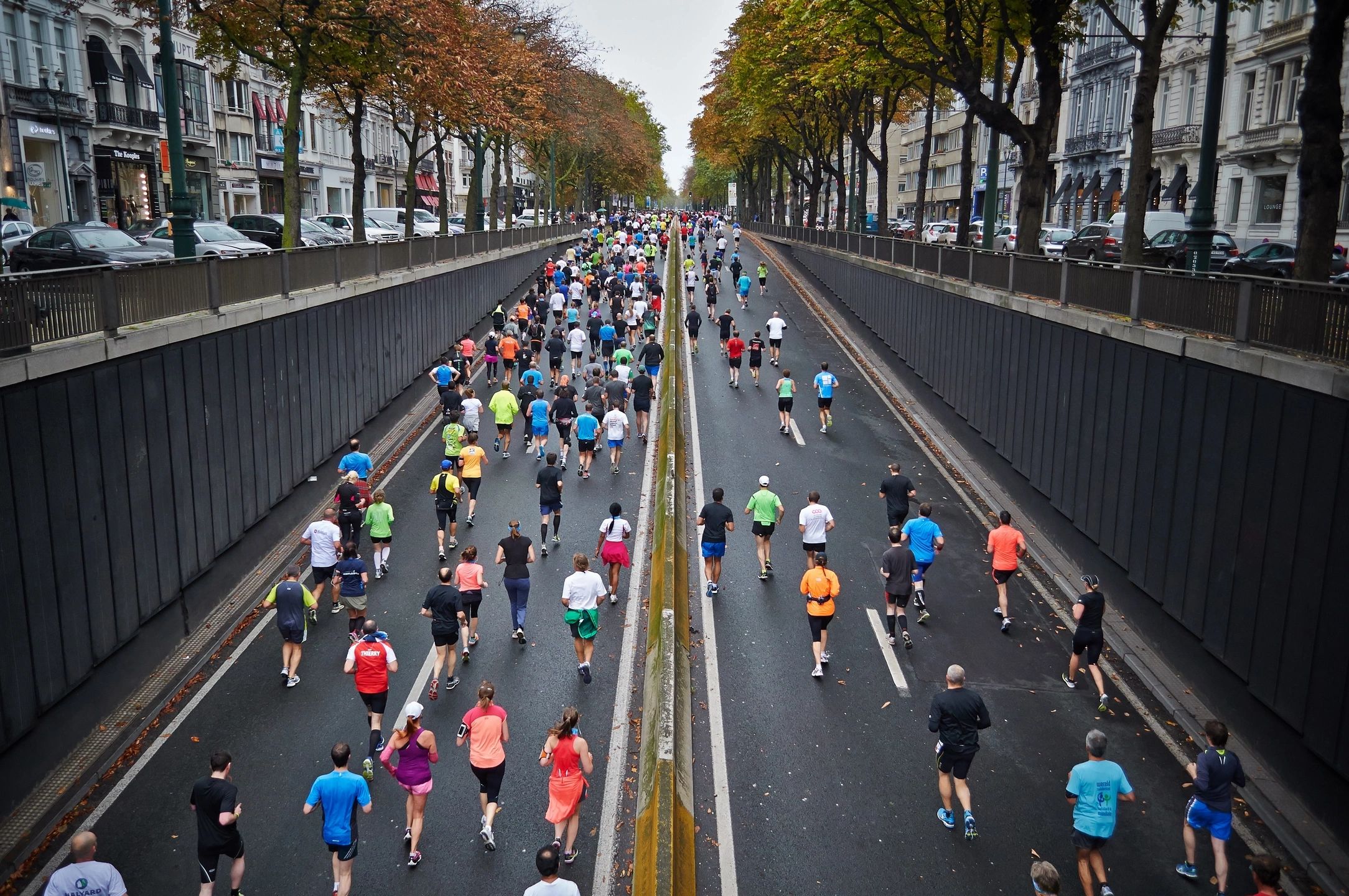How People in India Are Earning Through Marathons These Days
Let’s explore the different ways People in India Are Earning Through Marathons. Marathons in India have evolved from being just fitness events to multi-crore industries, offering numerous earning opportunities for athletes, event organizers, brands, influencers, and even small businesses. With the rise in health consciousness, corporate sponsorships, and digital influence, running events are now platforms for both fitness and financial growth. Making money through marathons.

For elite athletes, marathon running is a full-time career. Competitive runners participate in national and international marathons to win cash prizes and attract brand endorsements.
Table of Contents
1. How They Earn?
- Winning Prize Money – Major marathons in India offer ₹50,000 to ₹50 lakh in prize money for winners. The Tata Mumbai Marathon, Airtel Delhi Half Marathon, and Bengaluru Marathon are some of the most rewarding races.
- Corporate Sponsorships – Top Indian runners often sign sponsorship deals with Nike, Puma, and Adidas, earning money through advertisements and promotional campaigns.
- Training Camps & Coaching – Many experienced runners train aspiring athletes, charging fees for personalized coaching and diet plans.
Example
Ethiopian and Kenyan runners often participate in Indian marathons due to high cash rewards. Some Indian runners, like Gopi Thonakal and Nitendra Singh Rawat, have built careers through marathon winnings and endorsements.
2. Social Media Influencers & YouTubers – Sponsorships & Affiliate Marketing 📱
With the boom in social media and YouTube fitness content, many influencers and vloggers are turning marathons into revenue streams.
How They Earn?
- Brand Sponsorships – Companies like Garmin, Skechers, and Decathlon sponsor influencers to review and promote their running shoes, fitness watches, and accessories.
- YouTube Ad Revenue – Many fitness YouTubers create content about training tips, marathon vlogs, nutrition guides, earning from Google AdSense monetization.
- Affiliate Marketing – Influencers earn commissions by promoting Amazon and Flipkart links for running gear and supplements.

Example
Fitness influencers like Gaurav Taneja (Flying Beast) and FitTuber have collaborated with fitness brands, earning through content about running and health.
3. Event Organizers – Entry Fees & Corporate Sponsorships 🎟️
Organizing a marathon is a huge business opportunity, with organizers earning through entry fees, sponsorships, and brand partnerships.
How They Earn?
- Entry Fees – Marathon registration costs range from ₹500 to ₹5,000 per participant. With thousands of runners, organizers earn crores per event.
- Corporate Sponsorships – Big brands like Tata, Airtel, and IDBI invest crores to sponsor marathons in exchange for advertising and branding opportunities.
- Merchandise & Expo Stalls – Events sell official T-shirts, medals, and running gear, adding extra revenue.
Example
The Tata Mumbai Marathon, India’s largest race, attracts over 50,000 participants, generating multi-crore revenue through sponsorships and registrations.
4. Running Coaches & Training Programs – Personalized Guidance 🏃♂️
With more people interested in running marathons, the demand for training programs and personal coaching is increasing.
How They Earn?
- Online Coaching – Fitness trainers and former athletes offer virtual training programs charging ₹5,000 to ₹50,000 per plan.
- One-on-One Training – Personalized coaching sessions cost between ₹1,000 to ₹5,000 per month.
- Workshops & Webinars – Many coaches conduct fitness workshops charging participants a registration fee.
Example
Former athletes like Shiva Keshavan (Olympian) and Indian marathon champions provide specialized coaching to improve performance.
5. Selling Running Gear & Accessories – Sports Equipment Business 👟
With marathon culture growing, the demand for running-related products is booming. Entrepreneurs and e-commerce sellers are making money by selling:
How They Earn?
- Running Shoes & Apparel – Brands like Nike, Asics, and Reebok target runners, selling premium shoes at ₹5,000 to ₹20,000 per pair.
- Energy Gels & Supplements – Companies sell hydration packs, energy gels, and protein powders, which are essential for runners.
- Customized Marathon Medals & Merchandise – Some companies sell personalized medals and finisher T-shirts for runners.
Example
Indian fitness startups like Cult.fit and Decathlon have built multi-crore businesses selling running gear.
6. Charity & Fundraising Marathons – Social Cause Awareness ❤️
Many marathons are organized to support social causes, allowing individuals and NGOs to raise donations while benefiting from event earnings.
How They Earn?
- Donations & Crowdfunding – Runners encourage friends and family to donate for charity marathons.
- Corporate CSR Sponsorships – Companies sponsor charity marathons as part of their Corporate Social Responsibility (CSR) initiatives.
Example
The Pinkathon (Women’s Marathon) raises funds for breast cancer awareness, while NGOs organize runs for education and environmental causes.

7. Photographers & Content Creators – Selling Marathon Photos & Videos 📸
Professional photographers and content creators earn by capturing high-quality race moments and selling them to participants.
How They Earn?
- Selling Digital Photos – Photographers upload event pictures online, charging ₹100 to ₹500 per photo.
- Event Coverage Videos – YouTube vloggers monetize marathon event videos through advertisements and sponsorships.
- Reels & Social Media Content – Viral content from marathons can generate millions of views, bringing in ad revenue.
Example
Several sports photographers earn by covering Mumbai & Delhi marathons, uploading images to platforms like MarathonFoto.
Is Organizing a Marathon a Passive Source of Income?
Organizing a marathon is not a completely passive income source, but it can generate semi-passive income if structured correctly. Let’s break it down.
Why It’s Not 100% Passive?
A marathon requires significant upfront effort in planning, organizing, and managing logistics. Key tasks include:
✅ Securing permissions from local authorities.
✅ Sponsorship deals to fund the event.
✅ Marketing & registrations to attract participants.
✅ Logistics like water stations, medical support, security, and timing systems.
How Can It Become Semi-Passive?
Once the first few marathons are successfully executed, organizers can automate certain parts, making it a semi-passive business:
1️⃣ Franchise Model – Create a marathon brand (e.g., “Jaipur Fitness Run”) and let others organize under your brand for a fee.
2️⃣ Annual Event Recurrence – If a marathon gains popularity, registration & sponsorship deals become easier each year.
3️⃣ Delegation & Automation – Hiring an event management team or outsourcing registration, merchandise sales, and operations makes it less hands-on.
4️⃣ Digital Revenue Streams – Selling marathon T-shirts, training plans, and virtual runs can provide ongoing income.
Verdict: Passive or Not?
💰 Short-term: Active Income (requires a lot of work initially).
💰 Long-term: Semi-Passive Income (if automated & scaled properly).
If you’re looking for a truly passive income, investing in marathon-related businesses (gear sales, sponsorships, or franchising) is a better option! 🚀
Best Snacks to Eat Before a Marathon
If you’re preparing for a marathon, the food you eat beforehand can make a huge difference in your energy levels and performance. You need snacks that provide sustained energy, are easy to digest, and won’t cause discomfort while running. Here are some great pre-marathon snack ideas, especially for women who want to feel light, strong, and ready to go!
1. Bananas with Peanut Butter
Bananas are a perfect pre-run snack because they are high in potassium, which helps prevent muscle cramps. Pairing them with a small amount of peanut butter adds healthy fats and protein, keeping you fuller for longer. This combo also provides slow-burning energy so you don’t feel tired halfway through the run.
Tip: If peanut butter feels too heavy, you can swap it with almond butter or eat the banana alone.
2. Oatmeal with Honey
Oatmeal is an excellent source of slow-digesting carbohydrates, which keep your energy levels stable during the marathon. Adding a drizzle of honey provides natural sugar for a quick energy boost, while a sprinkle of nuts or chia seeds adds fiber and healthy fats.
Tip: If you have a sensitive stomach, stick to plain oats with honey and avoid heavy toppings.
3. Greek Yogurt with Berries
Greek yogurt is rich in protein and easy to digest. Adding strawberries, blueberries, or bananas makes it even better because the fruit provides natural sugars for energy. This snack is perfect if you’re running in the morning and need something light but nutritious.
Tip: If you are lactose-intolerant, opt for dairy-free yogurt alternatives like almond or coconut yogurt.
4. Whole Wheat Toast with Almond Butter
Whole wheat toast is a great source of complex carbohydrates, while almond butter adds healthy fats and protein. This snack is simple yet effective in keeping you full and energized. If you want extra flavor, add a few slices of banana or a drizzle of honey.
Tip: Stick to one slice if you don’t want to feel too full before your run.
5. Dates with Nuts
Dates are natural energy boosters packed with quick-digesting carbohydrates and potassium. Pairing them with a handful of almonds or walnuts adds healthy fats and protein, making this a great pre-marathon snack.
Tip: Soak the dates overnight if they are too hard to chew.
6. Rice Cakes with Avocado
Rice cakes are light, easy to digest, and packed with quick-digesting carbs. Topping them with avocado provides a boost of healthy fats and potassium, which can help prevent muscle cramps during your run.
Tip: If you prefer something sweeter, you can replace avocado with almond butter and honey.
7. Smoothie with Protein Powder
A smoothie is a great liquid snack that provides quick energy without making you feel heavy. Blend together:
- 1 banana (for natural sugar and potassium)
- 1 scoop protein powder (for muscle support)
- Almond milk or coconut water (for hydration)
- A handful of spinach or chia seeds (for extra nutrients)
Tip: Avoid adding too much dairy, as it can cause bloating before a run.
8. Boiled Eggs with Whole Wheat Crackers
Boiled eggs are an excellent source of protein, and when paired with whole wheat crackers, they provide a balanced mix of protein and carbohydrates. This snack helps with muscle recovery and keeps you full without feeling sluggish.
Tip: If you don’t like eggs, you can replace them with cottage cheese or tofu.
Final Tips
✔ Eat your snack 30-90 minutes before the run to allow proper digestion.
✔ Avoid greasy or spicy foods as they can cause stomach discomfort.
✔ Stay hydrated by drinking enough water before the marathon.
✔ Listen to your body—stick to foods that you know work well for you.
A marathon is all about endurance, and the right snack can make all the difference in how you feel and perform. So, choose wisely, eat well, and run strong! 🏃♀️💪
Conclusion – The Future of Marathon Economy in India
Marathons have grown into a multi-billion rupee industry in India, creating income opportunities for athletes, influencers, event managers, brands, and small businesses. Whether it’s through winning races, coaching runners, selling gear, or content creation, the marathon ecosystem is fueling careers and businesses like never before.
With fitness awareness increasing, marathons will continue to grow, offering even more financial opportunities in the coming years. If you’re looking to monetize your passion for fitness and running, now is the perfect time to step into this industry! 🚀

